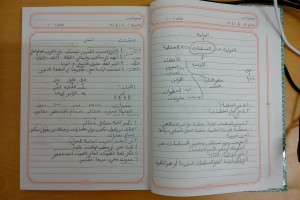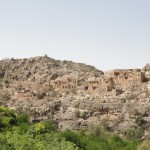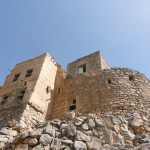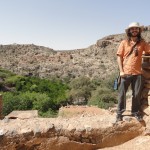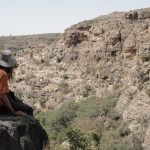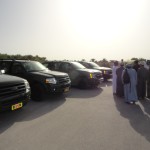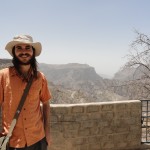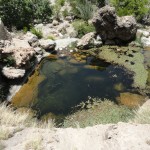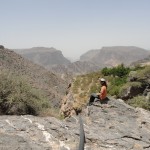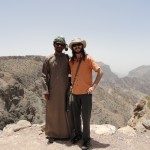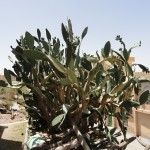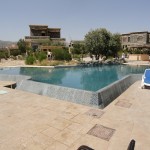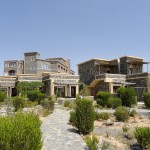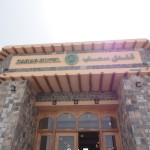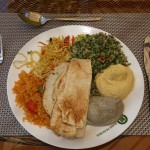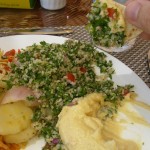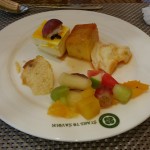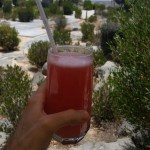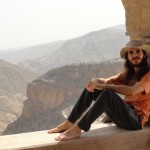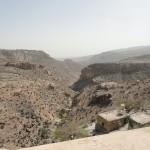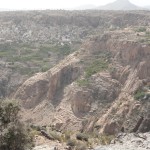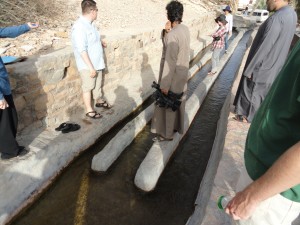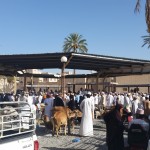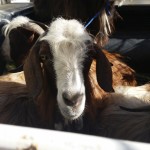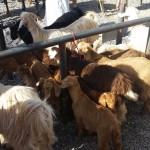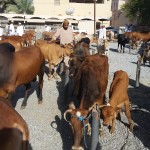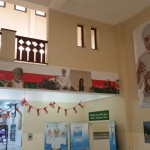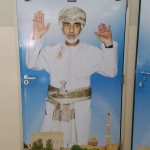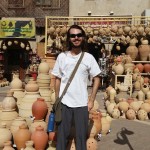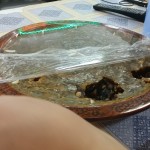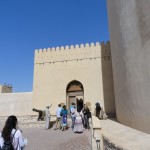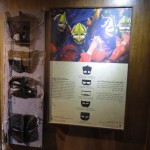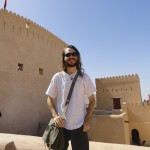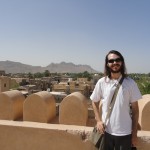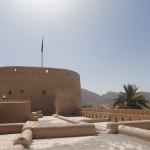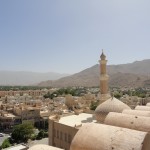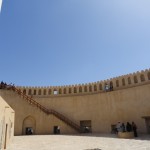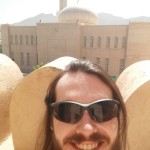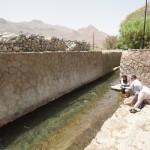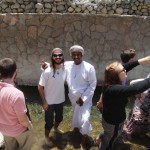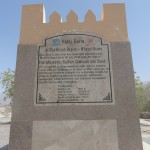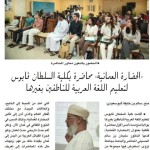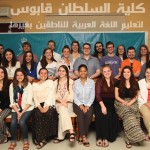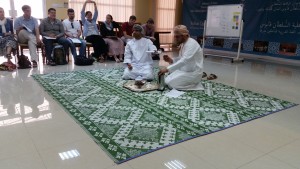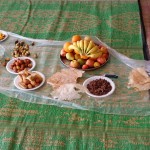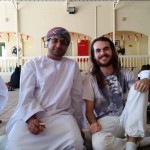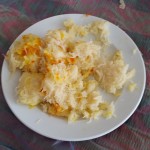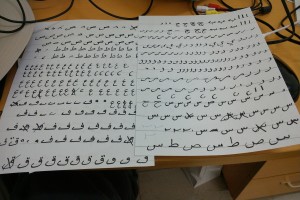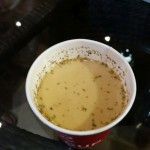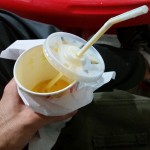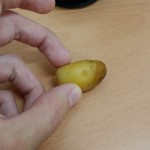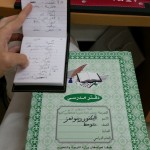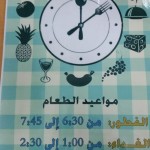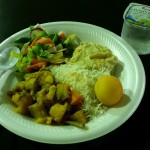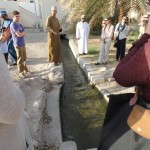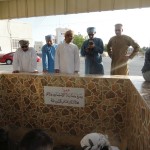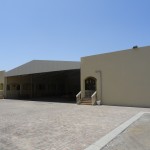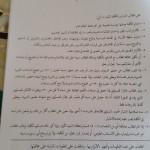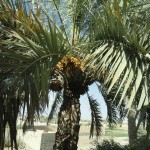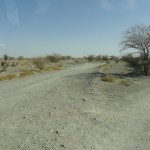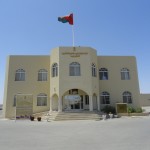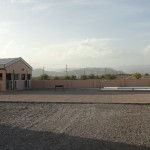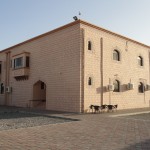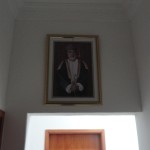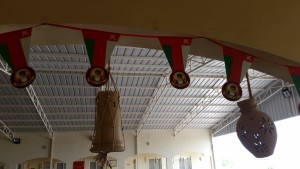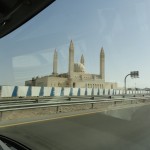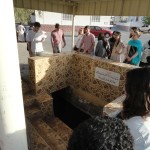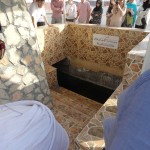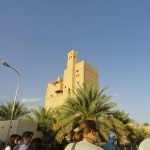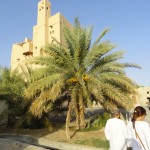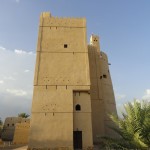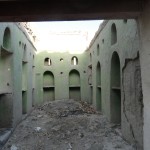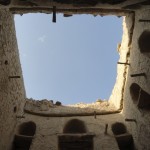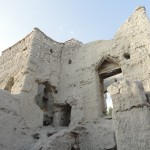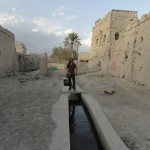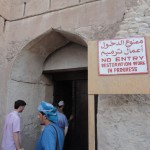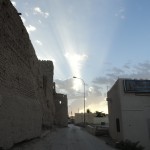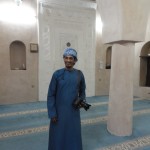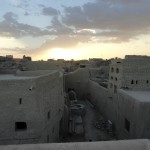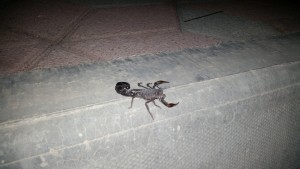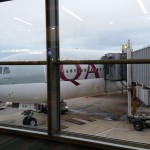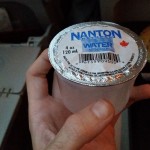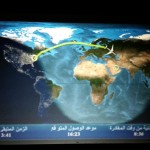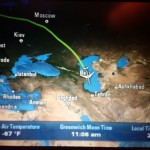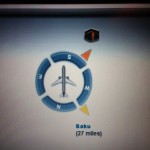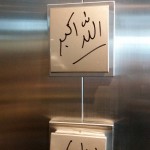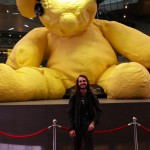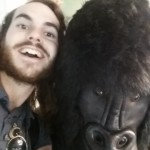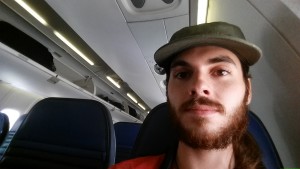Today was my first full day in Oman. I’ll start with a few random interesting things in case you don’t want to read all of this. Oman is pretty, but also incredibly hot! Not that I didn’t expect that. Pictures of Sultan Qaboos are everywhere! On billboards, in every office space, in our dorm, everywhere. The buildings, even modern ones, though, look very different. They’re mostly light colors and built to be more heat-efficient in this weather. There’s a ton of empty space here as well. And by empty I mean nothing other than rocks and some bushes. Some people in my group have said that it’s a lot like Arizona. Even Muscat, which has 1 million people, only had mostly smaller buildings than one would expect and was very spread out. Most people here speak some English, and almost every sign is in English and Arabic. Speaking Arabic has helped, though, and people here are always impressed to see Americans speaking it.
I’ll start with last night since I haven’t written since then. We arrived at Muscat around 10:00 PM. Even at 10:00 at night, it was about 90 degrees outside, and it was humid! And I saw my first mosque in Oman in the airport parking lot. After we met our guide, Tilal, and a few others from the Sultan Qaboos College for Teaching Arabic, we went to a hotel in Muscat. I thought we were going to drive straight to Manah, but staying the night in Muscat turned out to better. Tilal wound up taking us out to a restaurant called “Old Turkey Restaurant”, and I had some Tabouli, Hummus, and Baba Ghanoush.
-
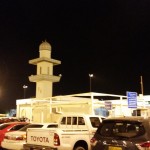
-
The first mosque I saw in Oman – in the airport parking lot
-
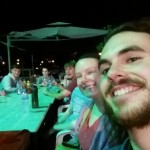
-
With Megan and a few others from my group at the Turkish restaurant our first night in Oman
-
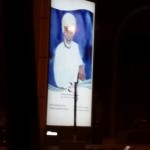
-
Sultan Qaboos billboard as we were leaving the airport
-
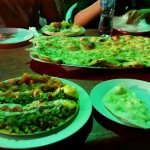
-
My food at the “Old Turkey” restaurant in Muscat
-
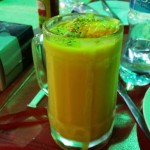
-
Mango juice thing
Tilal wants us to speak only in Arabic, which is cool but difficult. All of our travel directions and instructions are now in Arabic (of course he will speak English with us if we really need). Luckily, everyone in the college is very comfortable speaking Fusha, or Modern Standard Arabic. I’ll now go off on a tangent about Arabic in case anyone isn’t familiar with the difference between Modern Standard Arabic and colloquial Arabic, so if you are already familiar or not interested you can skip the next paragraph.
The current state of the Arabic language reminds me a little bit of Latin in the early days of the development of Romance languages. There are several dialects of Arabic, some of which are mutually intelligible, and some of which aren’t. Two of the main groups, for example, are the Levantine and Egyptian dialects. Then there is the Fusha (“foos-ha”), or Modern Standard Arabic, which is derived from classical Qur’anic Arabic. No Arab speaks Fusha in their everyday lives, but everyone understands it because it is used in most media, and Arabic is traditionally only written in Fusha. So it’s a little bit of an awkward situation with the language. People don’t really just speak Arabic, they speak their own variety of it, and some are about as different as French and Spanish! But people in the Middle East want to preserve the idea of Arabic being a single language because of its religious connotation. We learn Fusha in most schools in America because all educated Arabs understand it and because it’s easier to sell I think because one can claim more speakers. Anyways, it’s nice that Tilal and our guides at the college are willing to speak Fusha with us because most of my Arab friends seem to prefer English.
I essentially passed out after I finished my food because I was so tired. Fortunately, though, I have almost no jet lag! I’m eight hours ahead here, by the way. Today we drove from Muscat to Manah, which was about a two hour drive. We drove through the Jebel Shams mountain range, which was very pretty but strange. The mountains are almost all rock; I’m used to seeing green mountains.
We arrived at our dorm complex in the afternoon. Our complex is on the outskirts (far out of walking distance because of the heat) of Manah, which is an incredibly small town on the outskirts of Nizwa, which is a slightly larger city. We’re far away in our own little enclave. The dorms are nice, though. Unfortunately there is not a piano or guitar in sight. We went to a grocery store called Lu Lu but for some reason we only stayed about thirty minutes (even though the drive there was thirty minutes).
-
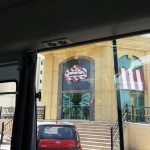
-
Even in the Middle East…
-
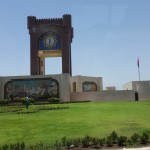
-
“The Tower of Awakening”
-
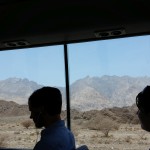
-
View of the mountains from the bus
-
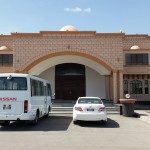
-
The living area for the college.
-
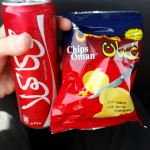
-
An Omani snack!
-
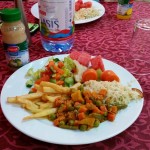
-
First meal at the college
-
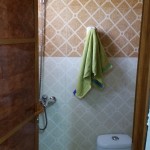
-
The bathroom – a single room with a shower and a toilet. Very efficient!
-
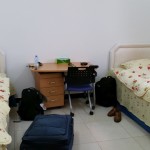
-
Our room in the living area
-
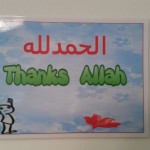
-
On the wall in the college living area
-
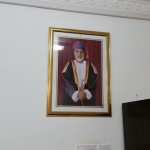
-
His Majesty Sultan Qaboos – a picture over the front desk in our hostel
I’ll be taking a few Arabic placement tests tomorrow!
